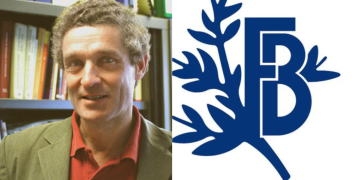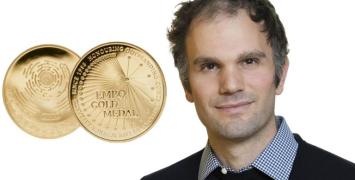The Balzan Prize’s aim is to foster culture, the sciences and the most meritorious initiatives in the cause of humanity, peace, and fraternity among peoples throughout the world. The four subject areas, two in literature, the moral sciences, and the arts, and two in the physical, mathematical, and natural sciences, and medicine, change every year. As stipulated in the Articles of the Foundation, the frequency of the special Prize for Humanity, Peace, and Fraternity among Peoples is normally at intervals of no less than three years. Since 2001 the prize money has increased to 1 million Swiss Francs per prize, on condition that half the money is used for projects involving young researchers. As of 2017, the amount of each of the four Balzan Prizes is now 750,000 Swiss francs.
ERC grantees Balzan laureates
Michael N. Hall - Balzan Prize, 2024

He won the Balzan Prize for ‘groundbreaking contributions to our understanding of the molecular mechanisms regulating cell growth.’
- Read bio Michael N. Hall
Hall obtained his PhD from Harvard University in 1981. He was then a research fellow at the Pasteur Institute in Paris for eight months before joining Ira Herskowitz's group at the University of California, San Francisco as a postdoctoral fellow. He became a principal investigator at UCSF in 1984, leading his own research group. In 1987, Hall moved to Basel, Switzerland, where he joined the Biozentrum of the University of Basel, as an assistant professor. He was promoted to professor in 1992. Hall was twice appointed Vice Director of the Biozentrum, from 2002 to 2009 and again from 2013 to 2016. He was also Chairman of the European Molecular Biology Organization Council between 2021 and 2022, and served on the Council from 2017 to 2019 and again from 2020 to 2022. Currently, Hall serves on the Board of Trustees of the Louis-Jeantet Foundation. In 2023, he established a second research group in Basel, at the Institute of Human Biology of the pharmaceutical company Roche.
Heino Falcke - Balzan prize, 2023
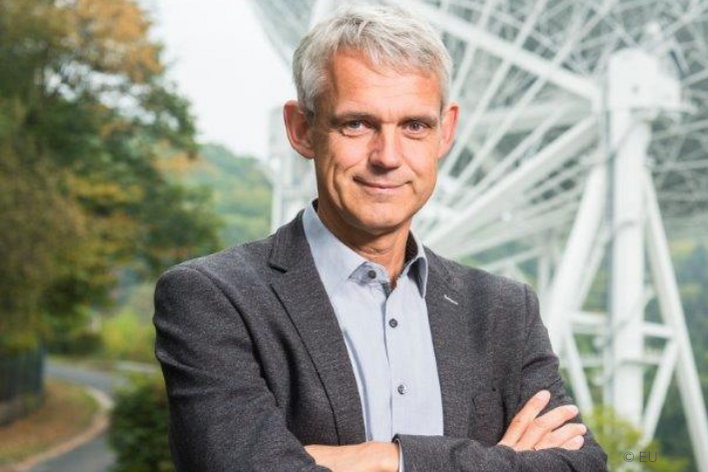
He won the Balzan prize for high-resolution images: from planetary to cosmic objects.
- Read bio Heino Falcke
Heino Falcke, born 26 September 1966 in Cologne is a German professor of radio astronomy and astroparticle physics at the Radboud University Nijmegen (Netherlands). His main field of study is black holes, and he is the originator of the concept of the 'black hole shadow'. In 2019, Falcke announced the first Event Horizon Telescope results at the EHT Press Conference in Brussels.
Falcke obtained a PhD degree in Astronomy summa cum laude in 1994 from the University of Bonn. He subsequently worked as a scientist for the Max Planck Institute for Radio Astronomy in Bonn (1995–1995), the University of Maryland (1995–1997), and the University of Arizona (1999). He was conferred a Habilitation by the University of Bonn in 2000. From 2000 to 2003, he was a staff scientist at the Max Planck Institute for Radio Astronomy in Bonn. In 2003, Falcke became adjunct professor of Radio Astronomy and Astroparticle physics at Radboud University Nijmegen. He also started working for ASTRON, the radio astronomy institute of the Netherlands. In 2007, he became a full professor at Nijmegen.
Falcke is involved in theoretical astronomy as well as observational and experimental studies. He was one of the leading forces behind the radio telescope LOFAR and pioneered radio detections of cosmic particles.
In 2000 he predicted it would be possible to make measurements near the edge of a black hole. Four years later, his team managed to do that.
Dorthe Dahl-Jensen - Balzan prize, 2022
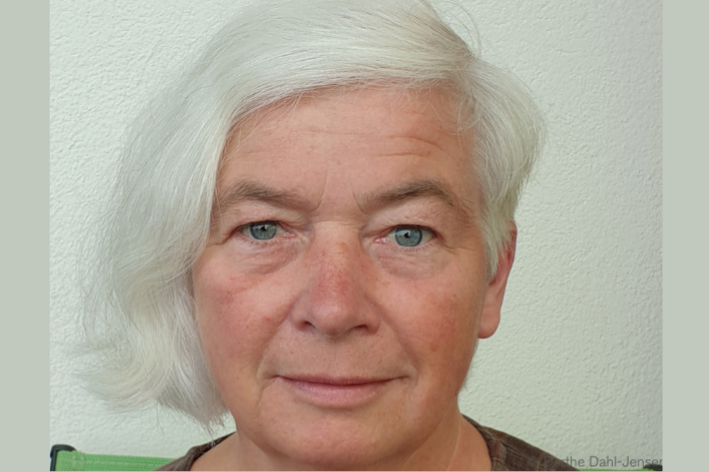
She won the Balzan prize for Glaciation and Ice Sheet Dynamics
- Read bio Dorthe Dahl-Jensen
Dorthe Dahl-Jensen, born 8 September 1958 in Copenhagen, Denmark, is a Danish palaeoclimatology professor and researcher at the Centre for Ice and Climate at the Niels Bohr Institute, University of Copenhagen in Denmark and the Centre for Earth Observation Sciences at the University of Manitoba in Canada. Her primary field is the study of ice and climate, specifically the reconstruction of climate records from ice cores and borehole data; ice flow models to date ice cores; continuum mechanical properties of anisotropic ice; ice in the solar system; and the history and evolution of the Greenland Ice Sheet.
Dahl-Jensen has an M.Sc. In Geophysics (1984) and a Ph.D. in Geophysics (1988) from the University of Copenhagen. As a student in 1980, Dahl-Jensen took part in ice-core drilling at the Dye 3 site on the Greenland ice sheet, a project led by Willi Dansgaard. Although Dansgaard had a rule that no women were allowed at the drilling site, he allowed Dahl-Jensen to participate. She was hired by Copenhagen's Niels Bohr Institute as an associate professor in 1997; in 2007, she became head of its Centre for Ice and Climate. In 2018 she also became a Canada Excellence Research Chair at the University of Manitoba.
She has the Order of the Dannebrog, Knight 1st Class, is a member of the Royal Danish Academy of Sciences and Letters, and also won the BBVA Frontiers Knowledge Award for Climate Change in 2024.
Joan Martinez Alier – Balzan prize, 2020
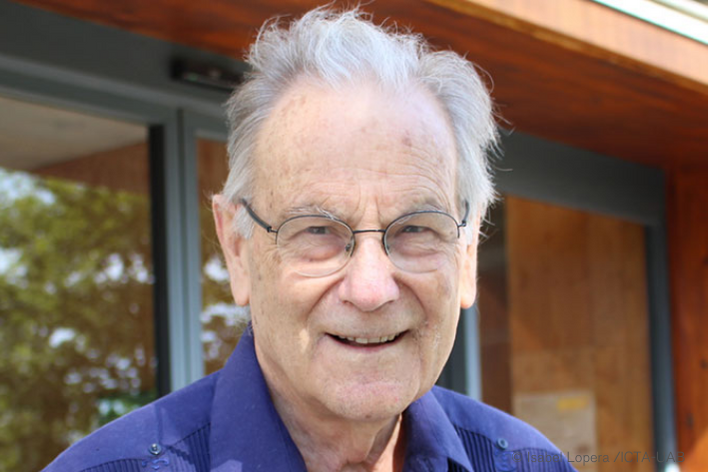
He won the Balzan prize for Environmental Challenges: Responses from the Social Sciences and the Humanities
- Read bio Joan Martinez Alier
Born in Barcelona, 1939. Doctorate in Economics, UAB 1977. Research fellow at St. Antony's College of the University of Oxford from 1963 to 1973, authoring books on agrarian struggles in Andalusia, Cuba and Peru. Member of the Ruedo ibérico publishing house in Paris. He returned to Barcelona in 1975 to the UAB as professor of economics and economic history. Co-founder of the International Society for Ecological Economics (1989). Co-founder of ICTA-UAB. His best known books are "Ecological Economics: Energy, Environment and Society" (1987), "Varieties of Environmentalism" (1997, with Ramachandra Guha) and "The Environmentalism of the Poor – a study of ecological conflicts and valuation" (2002). Co-director of the EJAtlas (www.ejatlas.org), in 2023 he published the 800 page book "Land, Water, Air and Freedom: the Making of World Movements for Environmental Justice".
Susan Trumbore - Balzan prize, 2020
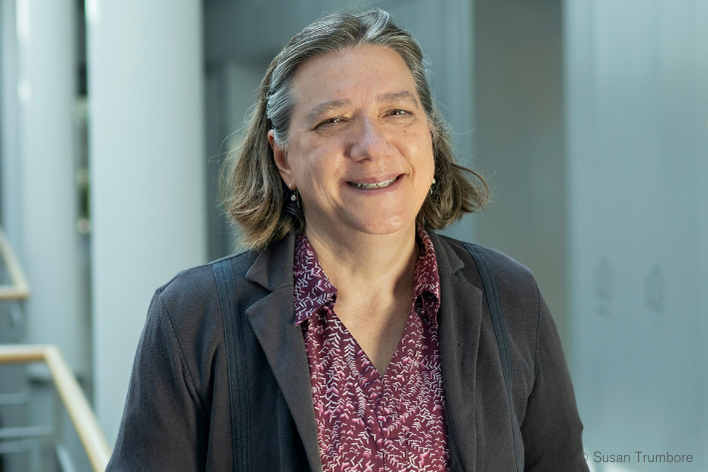
She won the Balzan prize for Earth System Dynamics
- Read bio Susan Trumbore
Susan Trumbore is an earth system scientist and director at the Max Planck Institute for Biogeochemistry. Her research uses the radiocarbon created by atomic weapons testing to understand how carbon flows through terrestrial ecosystems, and uses knowledge of the timescales of carbon cycling to predict how processes controlling carbon stored in soils and plant will respond to climate or management changes.
Trumbore earned a doctoral degree in geochemistry from Columbia University in 1989. After two postdocs, she joined the faculty at the University of California, Irvine (UCI) in 1991, where she helped found the Department of Earth System Science and still maintains a part-time appointment. In 2009, she became a director at the Max Planck Institute for Biogeochemistry, and she is an Honorary Professor of Geosciences at the Friedrich Schiller University of Jena. She is a fellow of the American Geophysical Union, the Geochemical Society and the American Association for the Advancement of Science, a Member of the National Academy of Sciences and the Leopoldina
Jean-Marie Tarascon - Balzan prize, 2020
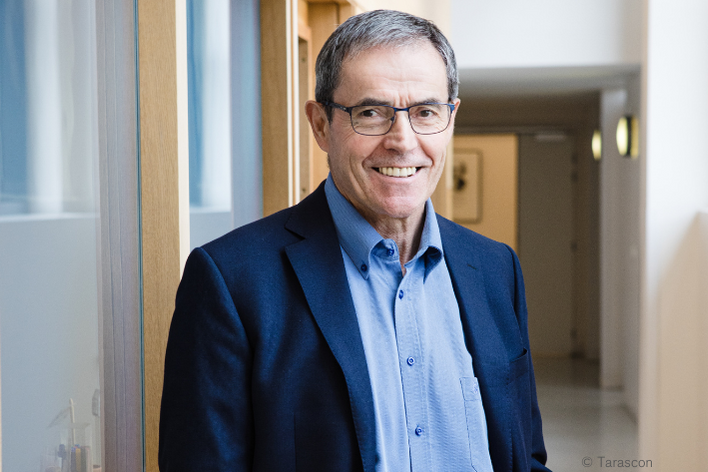
He won the Balzan prize for Environmental Challenges: Materials Science for Renewable Energy
- Read bio Jean-Marie Tarascon
He won the Balzan prize for Environmental Challenges: Materials Science for Renewable Energy.
Jean-Marie Tarascon, born September 21, 1953, is Professor of Chemistry at the Collège de France in Paris and Director of the French Research Network on Electrochemical Energy Storage (RS2E).
Tarascon was educated at the University of Bordeaux, where he was awarded a Diplôme d'études universitaires générales in physics and chemistry, a Master of Science degree in chemical engineering, and a PhD in solid-state chemistry in 1981. Following his PhD, Tarascon did postdoctoral research at Cornell University and worked at Bell Labs, Bellcore from 1982 to 1994, then moved to the University of Picardie Jules Verne in 1994. He has been at the College de France since 2010. He is also credited with laying foundations of the reputable Erasmus mundus masters course in energy storage and conversion "Materials for energy storage and conversion" hosted by UPJV, Amiens in association with seven universities across the globe and several energy research networks.
Erika von Mutius - Balzan prize, 2019
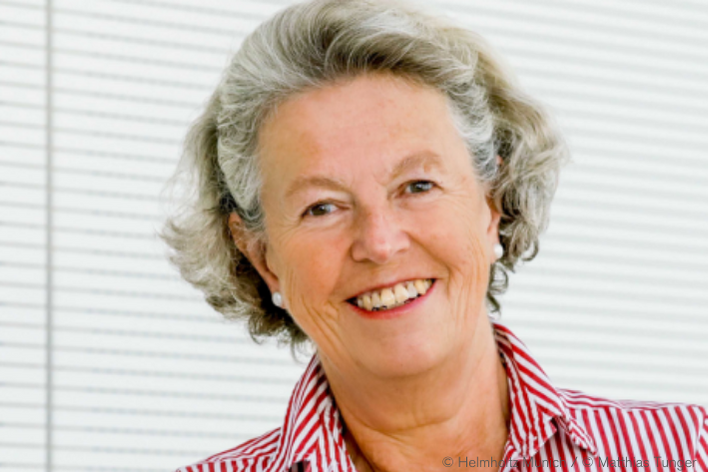
She won the Balzan prize for Pathophysiology of Respiration: From Basic Sciences to the Bedside
- Read bio Erika von Mutius
Erika von Mutius, born 14 May 1957 in Bonn, Germany, is a German pediatrician and allergologist at the Helmholtz Center Munich and the Ludwig-Maximilians-University of Munich. Her research interests include paediatrics, pediatric pneumology, allergology and epidemiology.
Von Mutius studied Medicine from 1976 to 1984 at the Ludwig-Maximilians-University Munich. From 1984 to 1992 she was trained as a specialist in pediatrics at the Dr. von Hauner Children's Hospital of the Ludwig-Maximilians-University Munich with all general pediatric wards, the neonatal intensive care unit, the pediatric intensive care unit and the pediatric surgical ambulance. In July 1992 she passed the pediatric exam. She was senior physician at the Haunersches Children's Hospital and habilitated in 1998. From 1997 to 1999 Von Mutius did a training in Clinical Effectiveness at the Harvard School of PublicHealth, Boston, U.S.A. She has been in the Editorial Board of The Journal of Allergy and Clinical Immunology: In Practice, since 2018, a Member of the International Advisory Board of “The Lancet Respiratory Medicine” since 2013 and a Past member of the Editorial Board of the New England Journal of Medicine 2006-2018.
Since 2000, she has been Head of the Allergy and Asthma Department of the hospital. In 2004 she was appointed Professor of Pediatrics at the University of Munich. Since 2017, she has been the Director of the new Institute for Asthma and Allergy Prevention (IAP) at Helmholtz Center Munich.
Luigi Ambrosio - Balzan prize, 2019
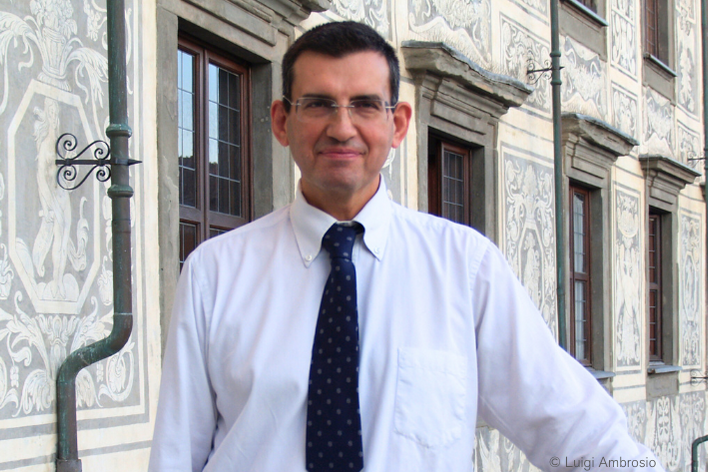
He won the Balzan prize for Theory of Partial Differential Equations
- Read bio Luigi Ambrosio
Luigi Ambrosio, born 27 January 1963, is a professor at Scuola Normale Superiore in Pisa, Italy. His main fields of research are the calculus of variations and geometric measure theory.
Ambrosio studied at the University of Pisa and, in the meantime, at the Scuola Normale Superiore, where he entered in 1981.
He is currently professor at the Scuola Normale, having taught previously at the University of Rome "Tor Vergata", the University of Pisa, and the University of Pavia. Ambrosio also taught and conducted research at the Massachusetts Institute of Technology, the ETH in Zurich, and the Max Planck Institute for Mathematics in the Sciences in Leipzig. He has been Managing Editor of the scientific journal Calculus of Variations and Partial Differential Equations, and member of the editorial boards of several scientific journals. He has been awarded the Caccioppoli Prize from the Italian Mathematical Union and the Fermat Prize from the University of Toulouse. Since May 9, 2019 Ambrosio is the Rector of the Scuola Normale Superiore di Pisa.
Eva Kondorosi - Balzan prize, 2018
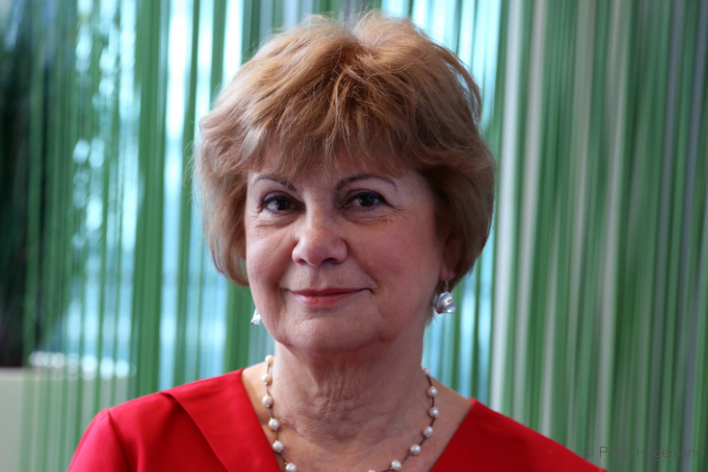
She won the Balzan prize for Chemical Ecology
- Read bio Eva Kondorosi
Eva Kondorosi was born in Budapest, graduated (Biology) and received her PhD (Genetics) at the L. Eötvös University in Budapest. She was postdoc at the Max Planck Institut für Züchtungsforschung (Köln) and visiting scholar at the Sussex, Harvard and Cornell Universities. Eva Kondorosi was the founding director of the BAYGEN Institute (2007-2012) which is now part of the Biological Research Centre of the Hungarian Academy of Sciences in Szeged where she directs the Symbiosis and Functional Genomics Unit. She has also been a founding member of the Institut des Science Végétales CNRS in Gif sur Yvette, France as one of the first research directors and group leaders. Her primary research field is Rhizobium-legume symbiosis with recent focus on the plant controlled differentiation of bacteria.
For her original discoveries she received several awards including the Széchenyi and the IS-MPMI awards in 2012. She is Full Member of the Hungarian Academy of Sciences, a foreign associate of the National Academy of Sciences (USA), and member of the following institutions or bodies: Academia Europaea (also member of its Board of Trustees), the European Molecular Biology Organization, the Board of Directors of the International Society for Molecular Plant-Microbe Interactions (until 2016), the German National Academy of Sciences Leopoldina, the French Academy of Agriculture and the Scientific Advisory Board of the Secretary-General of the United Nations (2013-).
Detlef Lohse - Balzan Prize, 2018
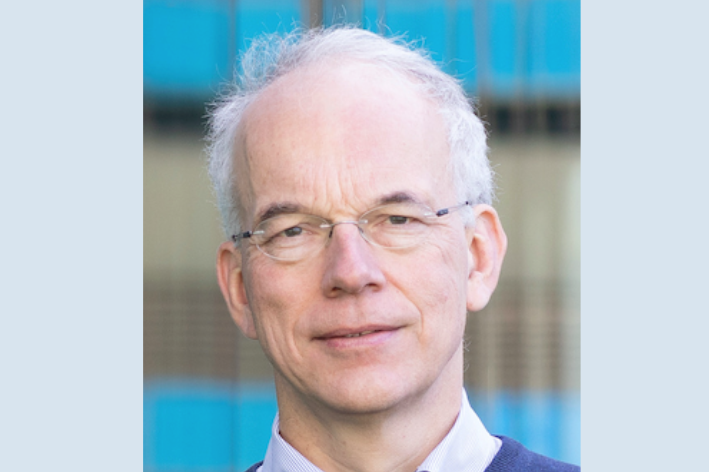
He won the Balzan prize for his exceptional contributions in the most diverse fields of fluid dynamics, such as the transition to turbulent regimes in the Rayleigh-Bénard convection, the study of multi-phase turbulent flow, sonoluminescence, the properties of bubbles and drops down to a microscopic level, and micro- and nanofluidics.
- Read bio Detlef Lohse
Detlef Lohse, born 15 September 1963 in Hamburg, is a German physicist and professor in the University of Twente's Department of Physics of Fluids in the Netherlands. Lohse studied at the University of Kiel and University of Bonn and completed his PhD at the University of Marburg in 1992. He served as a postdoctoral research fellow at the University of Chicago with Leo Kadanoff from 1993 to 1995. In 1997 he got his Habilitation in theoretical physics at the University of Marburg on the subject of Sonoluminescence. He became the Chair of the Physics of Fluids group at the University of Twente in 1998.
Lohse has been an external member of the Max Planck Institute for Dynamics and Self-Organization in Göttingen, Germany. Since 2016, he is the founding director of the Max Planck Center for Complex Fluid Dynamics at University of Twente. Professor Lohse was a recipient of the 2019 Max Planck Medal, 2017 Fluid Dynamics Prize of the American Physical Society, 2012 George K. Batchelor Prize, 2012 AkzoNobel Science Award, 2011 Physica Prize, 2009 Simon-Stevin-Meester Prize, 2005 Spinoza Prize for his work on turbulence, thermal convection, multiphase flow, microfluidics, sonoluminescence, and was awarded with a knighthood in the Order of the Netherlands Lion in 2010. He is also a member of the German Academy of Science Leopoldina since 2002, the Royal Netherlands Academy of Arts and Sciences since 2005, a member of the (American) National Academy of Engineering since 2017, and a Fellow of the American Physical Society.
Michaël Gillon - Balzan prize, 2017
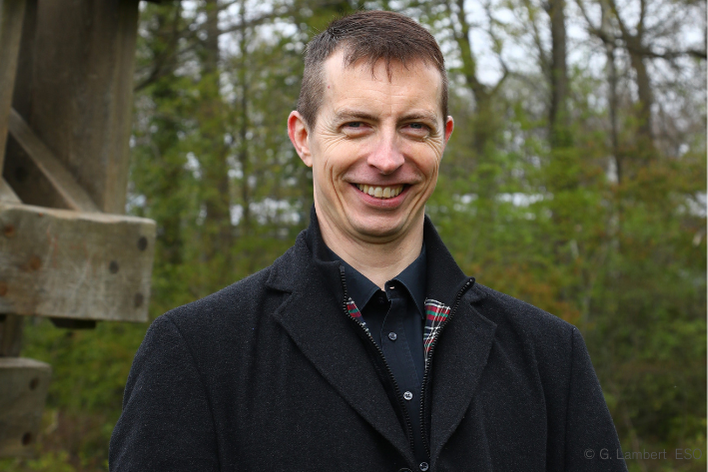
He won the Balzan prize for The Sun’s Planetary System and Exoplanets
- Read bio Michaël Gillon
Michaël Gillon, born 1974, is a Belgian astronomer and astrophysicist. His research focuses on exoplanets and astrobiology. He conducts them at the University of Liège as FNRS Research Director.
Gillon holds a master's degree in biochemistry and astrophysics and also a PhD in astrophysics, and completed his post-doctorate at Geneva Observatory. Back to the University of Liege in January 2009, he continues his work on the detection of exoplanets and their physicochemical characterization. His scientific achievements include, notably, the first detection of the transit of an exoplanet significantly smaller than Jupiter, the first firm ground-based detection of the thermal emission of an exoplanet, the co-detection of more than two hundreds transiting planets, and the first detection of the light of a ‘super-Earth’. He is also at the origin of the discovery of the TRAPPIST-1 exoplanetary system. This latest result was obtained in the context of his ERC-funded project SPECULOOS that aims to explore the nearest ultra-cool dwarf stars for transiting terrestrial planets.
His scientific work has won several prestigious awards like a Balzan prize (2017), a NASA Exceptional Scientific Achievement Medal (2018), and a Francqui Prize (2021).
Alain Aspect - Balzan prize, 2013
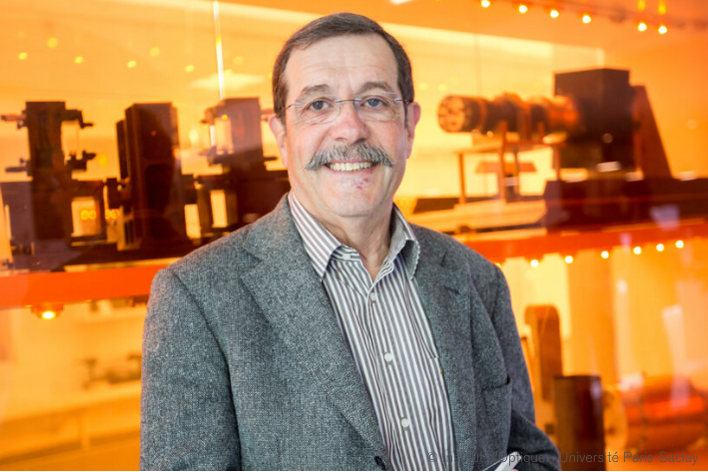
He won the Balzan prize for Quantum Information Processing and Communication
- Read bio Alain Aspect
Alain Aspect, born 15 June 1947, is a French physicist noted for his experimental work on quantum entanglement.
Aspect is a graduate of the École Normale Supérieure de Cachan (ENS Cachan, today ENS Paris-Saclay). He passed the agrégation in physics in 1969 and received his master degree (thèse de 3ème cycle) in 1971 from the Institut d’Optique (later known as Institut d'Optique Graduate School) of Université d'Orsay (later known as Université Paris-Sud). He then taught for three years in Cameroon as a replacement for then compulsory military service. In the early 1980s, while working on his doctorat d'État (habilitation thesis), he performed the Bell test experiments that showed that Albert Einstein, Boris Podolsky and Nathan Rosen's putative reductio ad absurdum of quantum mechanics, namely that it implied 'ghostly action at a distance', did in fact appear to be realized even when the measurements on two photons were separated by a so-called space-like interval, i.e., could influence each other only by an interaction travelling faster than light (see EPR paradox and Aspect's experiment).
He defended his 'doctorat d'État' in 1983 at Institut d’Optique - Université Paris-Sud (today part of Paris-Saclay University). From 1985 to 1992 he worked with Claude Cohen-Tannoudji, Jean Dalibard and Christophe Salomon on laser cooling of atoms (Nobel prize 1997). Aspect received an honorary doctorate from several universities in Europe, Canada, Australia, India. He is a professor at the Institut d’Optique-Université Paris Saclay, and at École Polytechnique-Institut Polytechnique de Paris He is a member of the French Academy of Sciences and French Academy of Technologies, and a foreign member of several academies (Austria, Belgium, Italy, UK, USA). He received many awards, including the CNRS gold medal, the Wolf prize in Physics, the Niels Bohr gold medal, the Albert Einstein medal, the Balzan prize. He is a founder or scientific advisor of several startup companies on quantum technologies (Pasqal, Quandela, QphoX, Welinq).
Pascale Cossart - Balzan prize, 2013
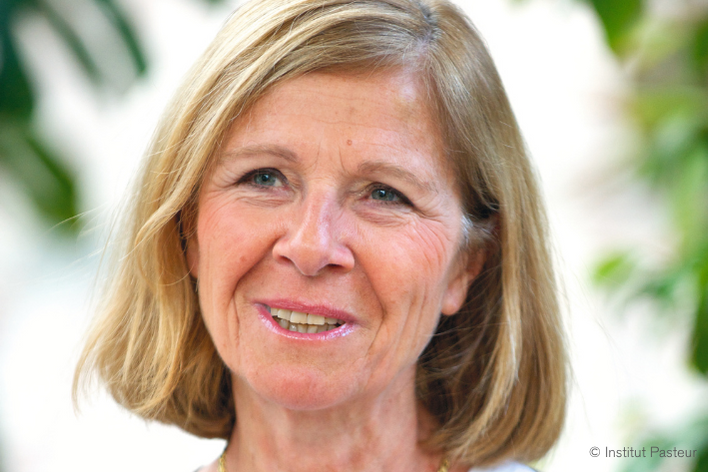
She won the Balzan prize for Infectious Diseases: Basic and Clinical Aspects
- Read bio Pascale Cossart
Pascale Cossart (born 21 March 1948) is a French microbiologist and cellular biologist who is affiliated with the Pasteur Institute of Paris. She focused her studies on understanding the molecular and cellular mechanisms underlying infection by intracellular bacterial pathogens taking as a model the food borne Listeria monocytogenes for which she is recognized as the foremost authority.
Cossart earned an M.S. in chemistry from Georgetown University in 1971 and her Ph.D. in biochemistry at the Pasteur Institute in Paris in 1977 (University Paris Diderot). She completed her postdoctoral fellowship at the Pasteur Institute. After running the Unité des Interactions Bactéries Cellules at the Pasteur Institute, she is currently an emeritus Professor. Her discoveries were recognized by her election to several academies (EMBO, French Académie des Sciences, NAS and NAM in the US, Leopoldina in Germany and Royal society in the UK) and by several international prizes including the Jeantet prize , the Robert Koch prize, the Heinrich Wieland prize and the Balzan prize.
David Baulcombe - Balzan prize, 2012
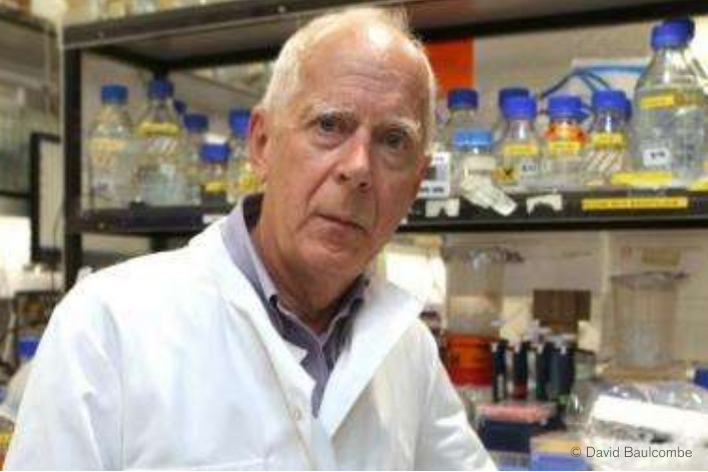
He won the 2012 Balzan Prize for Epigenetics for his fundamental contribution to the understanding of epigenetics and its role in cell and tissue development under normal and stressful conditions.
- Read bio David Charles Baulcombe
David Charles Baulcombe, born 1952, is a British plant scientist and geneticist.
Baulcombe did his studies at the University of Edinburgh, where he received his Doctor of Philosophy degree in 1977 for research on Messenger RNA in vascular plants supervised by John Ingle. After his PhD, Baulcombe spent the following three years as a postdoctoral fellow in North America, first at McGill University (Montreal, Quebec, Canada) from January 1977 to November 1978, and then at the University of Georgia (Athens, Georgia, United States) until December 1980. Baulcombe returned to the United Kingdom then, where he joined the Plant Breeding Institute (PBI) in Cambridge and started his career as an independent scientist.
In August 1988 Baulcombe left Cambridge for Norwich. He joined the Sainsbury Laboratory as a senior research scientist. In 1998 he was appointed honorary professor at the University of East Anglia, and given a full professorship there in 2002. From 2007 to 2020 he was Regius Professor of Botany in the Department of Plant Sciences at the University of Cambridge. As of 2017 he is a Royal Society Research Professor.
Joseph Ivor Silk - Balzan prize, 2011
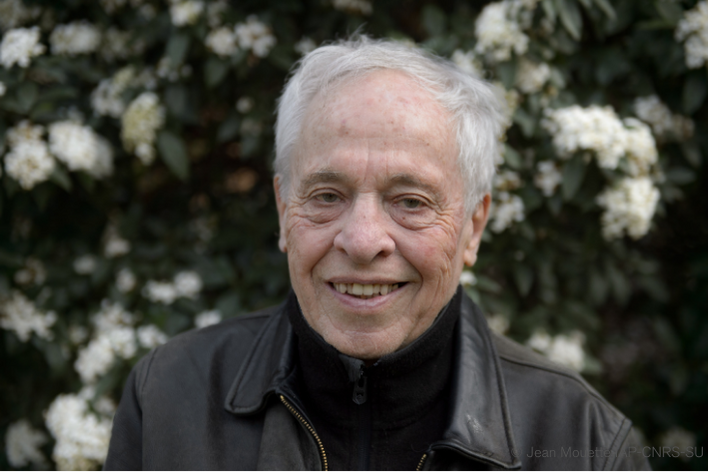
He won the Balzan prize for The Early Universe (From the Planck Time to the First Galaxies)
- Read bio Joseph Ivor Silk
Joseph Ivor Silk, born 3 December 1942, is a British-American-French astrophysicist. He was the Savilian Chair of Astronomy at the University of Oxford from 1999 to September 2011. He is an Emeritus Fellow of New College, Oxford and a Fellow of the Royal Society (elected May 1999). Silk obtained his PhD in Astronomy from Harvard in 1968, then took up his first post at the University of California at Berkeley in 1970 where he was Professor of Astronomy and Physics and Associate Director of the Center for Particle Astrophysics until 1999. Following a career of nearly 30 years there, Silk returned to the UK in 1999 to take up the Savilian Chair of Astronomy at the University of Oxford.
He was director of the subdepartment of Astrophysics at the University of Oxford from 1999 to 2004, founding Director of the Beecroft Institute for Particle Astrophysics and Cosmology from 2002 to 2011. He is currently emeritus researcher at the Institut d'astrophysique de Paris, Sorbonne University, Homewood Professor of Physics and Astronomy at Johns Hopkins University (since 2010), and was Professor of Astronomy at Gresham College from 2015 to 2019. He won the Balzan prize for The Early Universe (From the Planck Time to the First Galaxies) and the Gruber Prize in Cosmology in 2019.



